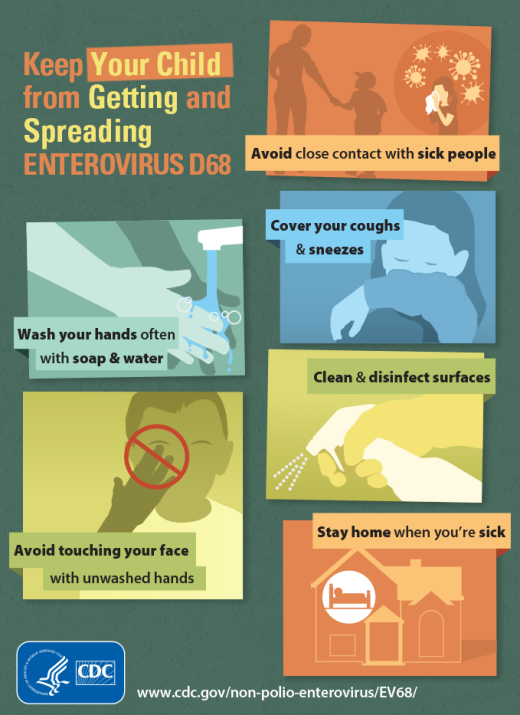How to Protect You and Your Children From the Spread of Enterovirus D68
/
Enterovirus D68 (EV-D68) is one of more than 100 non-polio enteroviruses. This virus was first identified in California in 1962. EV-D68 can cause mild to severe respiratory illness. Mild symptoms may include fever, runny nose, sneezing, cough, and body and muscle aches. Severe symptoms may include wheezing and difficulty breathing.
The California Department of Public Health (CDPH) confirmed 4 enterovirus D68 (EV-D68) cases in patients in San Diego (3) and Ventura (1) counties a few weeks ago.
Parents should seek medical attention immediately for children who are having any breathing difficulty (wheezing, difficulty speaking or eating, belly pulling in with breaths, blueness around the lips), particularly if the child suffers from asthma. There is no specific treatment for persons with EV-D68, nor is there a vaccine to prevent it. However, everyone six months of age and older should receive influenza vaccine every year to protect themselves against that important cause of respiratory disease.
Healthcare providers should consider EV-D68 as a possible cause of acute, unexplained severe respiratory illness, even if the patient does not have fever, and consider laboratory testing of respiratory specimens for enteroviruses when the cause of respiratory illness in severely ill patients is unclear.
The best way to prevent transmission of enteroviruses is to:
• Wash hands often with soap and water for 20 seconds, especially after changing diapers.
• Avoid touching eyes, nose and mouth with unwashed hands.
• Avoid kissing, hugging, and sharing cups or eating utensils with people who are sick.
• Disinfect frequently touched surfaces, such as toys and doorknobs, especially if someone is sick.
More information at www.cdc.gov/non-polio-enterovirus/about/ev-d68.html.


